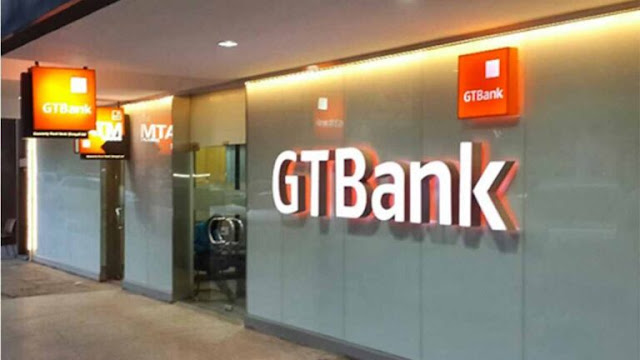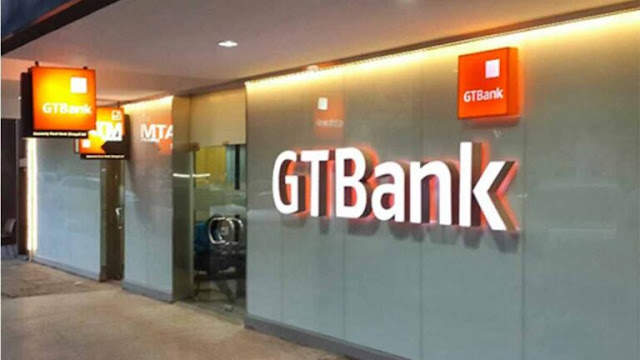In a landmark move that underscores its commitment to financial resilience and growth, Guaranty Trust Holding Company (GTCO) has successfully completed the recapitalization of its flagship banking subsidiary, Guaranty Trust Bank Limited (GTB). Announced on August 29, 2025, this strategic initiative marks a pivotal step in strengthening the foundation of the GTCO group, positioning it to navigate the evolving demands of Nigeria’s financial services sector and expand its influence in high-growth markets across Africa and beyond. The recapitalization aligns with the Central Bank of Nigeria’s (CBN) directive to bolster the capital base of commercial banks, ensuring their stability in the face of economic challenges and global competition.
GTCO’s statement on the recapitalization reflects a forward-looking vision: “With significant new capital secured and the CBN’s recapitalisation directive for Guaranty Trust Bank now fulfilled, we are focused on deepening innovation and service excellence, delivering improved performance, and expanding our footprint across high-growth markets, while upholding the industry-leading standards that define the GTCO brand.” This milestone not only reinforces GTB’s position as one of Nigeria’s leading financial institutions but also signals GTCO’s ambition to redefine banking through innovation, customer-centricity, and strategic expansion.
The Context: Nigeria’s Banking Sector and the CBN’s Recapitalization Mandate
Nigeria’s banking sector is a cornerstone of the country’s economy, serving as a catalyst for growth, investment, and financial inclusion. With a population of over 200 million and a rapidly growing digital economy, Nigeria presents immense opportunities for financial institutions to drive economic development. However, the sector has faced challenges, including economic volatility, currency depreciation, and the need to meet global regulatory standards. In response, the Central Bank of Nigeria (CBN) introduced a recapitalization directive in 2024, requiring commercial banks to increase their capital base to enhance their resilience, support economic growth, and compete effectively in the global financial landscape.
The CBN’s directive mandated that banks with international authorization, like GTB, maintain a minimum capital base of N500 billion (approximately $300 million, depending on exchange rates). This requirement aims to ensure that banks can absorb potential losses, finance large-scale projects, and support Nigeria’s aspirations to become a $1 trillion economy by 2030. For GTCO, the recapitalization of GTB is a strategic response to this directive, demonstrating its commitment to regulatory compliance and long-term sustainability.
GTCO, established in 2021 as a financial services holding company, oversees a diverse portfolio that includes GTB, its flagship banking subsidiary, as well as operations in asset management, payments, and pension management. GTB, founded in 1990, has grown to become one of Nigeria’s most trusted and innovative banks, known for its customer-centric approach, digital banking solutions, and strong financial performance. The recapitalization strengthens GTB’s ability to maintain its leadership position while enabling GTCO to pursue its broader vision of becoming a pan-African financial powerhouse.
The Significance of Recapitalization
The recapitalization of GTB is a transformative step for GTCO, with far-reaching implications for its operations, customers, and stakeholders. By securing significant new capital, GTB has fortified its financial foundation, ensuring it can withstand economic shocks and meet the growing demands of its diverse customer base. This move is particularly critical in the context of Nigeria’s economic challenges, including inflation, foreign exchange volatility, and the need to finance large-scale infrastructure and development projects.
The infusion of new capital enhances GTB’s capacity to lend to businesses, individuals, and government entities, supporting sectors such as agriculture, manufacturing, and technology. This aligns with Nigeria’s national development goals, which prioritize economic diversification and job creation. By strengthening its balance sheet, GTB is better positioned to finance high-impact projects, such as renewable energy initiatives, small and medium enterprises (SMEs), and digital infrastructure, all of which are critical to Nigeria’s economic transformation.
The recapitalization also reinforces GTB’s ability to comply with international regulatory standards, such as those set by the Basel Committee on Banking Supervision. A well-capitalized bank is more attractive to foreign investors, partners, and correspondent banks, facilitating cross-border transactions and global expansion. For GTCO, this creates opportunities to deepen its presence in high-growth markets across Africa, Europe, and the Middle East, where it already operates subsidiaries in countries like Ghana, Kenya, and the United Kingdom.
Deepening Innovation and Service Excellence
GTCO’s statement emphasizes its commitment to “deepening innovation and service excellence,” a reflection of the group’s long-standing reputation as a pioneer in Nigeria’s financial services sector. GTB has consistently led the industry in adopting cutting-edge technologies and delivering customer-focused solutions. From its early adoption of internet banking in the 2000s to its leadership in mobile banking and fintech collaborations, GTB has set benchmarks for innovation in Nigeria.
The recapitalization provides GTB with the resources to accelerate its digital transformation agenda. In recent years, Nigeria has witnessed a surge in digital banking, driven by increased smartphone penetration, internet access, and the rise of fintech startups. GTB has been at the forefront of this revolution, offering services like the GTWorld mobile app, which allows customers to perform transactions, manage accounts, and access financial products seamlessly. The new capital will enable GTB to invest in next-generation technologies, such as artificial intelligence (AI), blockchain, and data analytics, to enhance customer experiences and streamline operations.
For instance, AI-powered chatbots and personalized financial advisory services can improve customer engagement, while blockchain technology can enhance the security and efficiency of cross-border payments. These innovations are particularly important in Nigeria, where financial inclusion remains a priority. Despite significant progress, millions of Nigerians, particularly in rural areas, lack access to formal banking services. GTB’s investment in digital platforms and agent banking networks can bridge this gap, bringing financial services to underserved communities.
Service excellence is another hallmark of the GTCO brand. GTB’s customer-centric approach, characterized by tailored financial products, responsive support, and transparent communication, has earned it a loyal customer base. The recapitalization will enable GTB to expand its branch network, upgrade its digital infrastructure, and train staff to deliver world-class service, ensuring that it remains the bank of choice for individuals, businesses, and institutions.
Expanding Footprint in High-Growth Markets
GTCO’s ambition to expand its footprint across high-growth markets is a key pillar of its post-recapitalization strategy. Africa’s financial services sector is experiencing rapid growth, driven by urbanization, a youthful population, and increasing demand for digital solutions. Countries like Ghana, Kenya, Rwanda, and South Africa are emerging as financial hubs, attracting investment from global players. GTCO, through GTB and its other subsidiaries, is well-positioned to capitalize on these opportunities.
The recapitalization strengthens GTB’s ability to expand its operations in existing markets and enter new ones. In West Africa, GTB operates in Ghana, Gambia, and Sierra Leone, where it has established a strong presence. In East Africa, its Kenyan subsidiary is gaining traction, while its UK operations serve as a gateway to Europe. The new capital will support investments in infrastructure, technology, and human resources, enabling GTB to compete with regional and global banks.
Beyond Africa, GTCO’s international ambitions include deepening its presence in markets like the United Kingdom and exploring opportunities in the Middle East and Asia. These regions offer significant potential for trade finance, wealth management, and diaspora banking, given the large Nigerian populations in these areas. By leveraging its strong brand and financial stability, GTCO can position itself as a trusted partner for cross-border transactions and investments.
The expansion strategy also aligns with Nigeria’s broader economic goals. As Africa’s largest economy, Nigeria seeks to play a leading role in the African Continental Free Trade Area (AfCFTA), which aims to create a single market for goods and services across 54 African countries. GTB’s enhanced capital base will enable it to finance intra-African trade, support exporters, and facilitate cross-border investments, contributing to the success of AfCFTA.
Upholding Industry-Leading Standards
GTCO’s commitment to “upholding the industry-leading standards that define the GTCO brand” is a testament to its legacy of excellence. Since its inception, GTB has been recognized for its financial performance, corporate governance, and social responsibility. The bank has won numerous awards, including Best Bank in Nigeria by Euromoney and Most Innovative Bank in Africa by the African Banker Awards. These accolades reflect GTB’s ability to balance profitability with purpose, delivering value to shareholders while making a positive impact on society.
The recapitalization reinforces GTB’s commitment to maintaining these standards. A stronger capital base enhances the bank’s ability to manage risks, comply with regulatory requirements, and deliver consistent returns to investors. It also enables GTCO to invest in corporate social responsibility (CSR) initiatives, such as education, healthcare, and environmental sustainability, which have been integral to the group’s identity.
For example, GTB’s annual CSR programs, such as the GTCO Food and Drink Festival and the Autism Awareness Campaign, have made significant contributions to community development. The recapitalization will provide additional resources to scale these initiatives, reinforcing GTCO’s role as a responsible corporate citizen.
The Broader Economic Impact
The recapitalization of GTB has implications beyond the banking sector, contributing to Nigeria’s broader economic goals. By strengthening one of its leading financial institutions, GTCO is supporting the CBN’s efforts to stabilize the banking sector and boost investor confidence. A robust banking system is critical for attracting foreign direct investment (FDI), financing infrastructure projects, and driving economic growth.
The recapitalization also aligns with Nigeria’s ambition to diversify its economy. While oil has historically dominated Nigeria’s export revenues, the government is prioritizing sectors like agriculture, manufacturing, and technology. GTB’s enhanced lending capacity will enable it to finance SMEs, startups, and large-scale projects in these sectors, creating jobs and stimulating economic activity.
Furthermore, the recapitalization supports Nigeria’s financial inclusion agenda. By investing in digital banking and expanding its reach to underserved areas, GTB can bring more Nigerians into the formal financial system, reducing poverty and inequality. This is particularly important in rural communities, where access to credit and financial services remains limited.
Challenges and Opportunities
While the recapitalization is a significant achievement, GTCO and GTB face challenges in realizing their ambitious goals. Nigeria’s economic environment is characterized by high inflation, foreign exchange constraints, and regulatory complexities, which could impact the bank’s operations. Competition from fintech startups and other banks also requires GTB to continuously innovate to maintain its market leadership.
However, these challenges are outweighed by the opportunities. Nigeria’s growing population, increasing digital adoption, and integration into AfCFTA create a fertile ground for financial services growth. GTCO’s strong brand, experienced leadership, and financial stability position it to capitalize on these trends. The recapitalization provides the resources to navigate challenges and seize opportunities, ensuring GTB remains a leader in Nigeria and beyond.
GTCO’s Vision for the Future
The recapitalization of GTB is a stepping stone toward GTCO’s broader vision of becoming a leading pan-African financial services group. Under the leadership of Group CEO Segun Agbaje, GTCO has pursued a strategy of diversification, innovation, and global expansion. The holding company structure allows GTCO to explore new verticals, such as insurance, wealth management, and fintech, while leveraging GTB’s banking expertise.
Looking ahead, GTCO aims to deepen its impact through strategic partnerships, technological innovation, and customer-centric solutions. The recapitalization positions GTB to lead these efforts, delivering value to customers, shareholders, and communities. By expanding its footprint, embracing digital transformation, and upholding its industry-leading standards, GTCO is poised to shape the future of financial services in Africa.
Conclusion
The recapitalization of Guaranty Trust Bank Limited is a transformative milestone for Guaranty Trust Holding Company, reinforcing its position as a leader in Nigeria’s financial services sector. By securing significant new capital and fulfilling the CBN’s recapitalization directive, GTCO has strengthened GTB’s foundation, enabling it to deepen innovation, deliver service excellence, and expand into high-growth markets. This achievement reflects GTCO’s commitment to financial stability, customer satisfaction, and economic development.
As GTCO looks to the future, the recapitalization positions it to navigate challenges and seize opportunities in Nigeria’s dynamic economic landscape. By upholding the industry-leading standards that define the GTCO brand, the group is poised to drive transformative change, empower communities, and contribute to Nigeria’s aspirations for growth and prosperity. The recapitalization of GTB is not just a financial milestone; it is a testament to GTCO’s vision of building a legacy of excellence and impact for generations to come.





